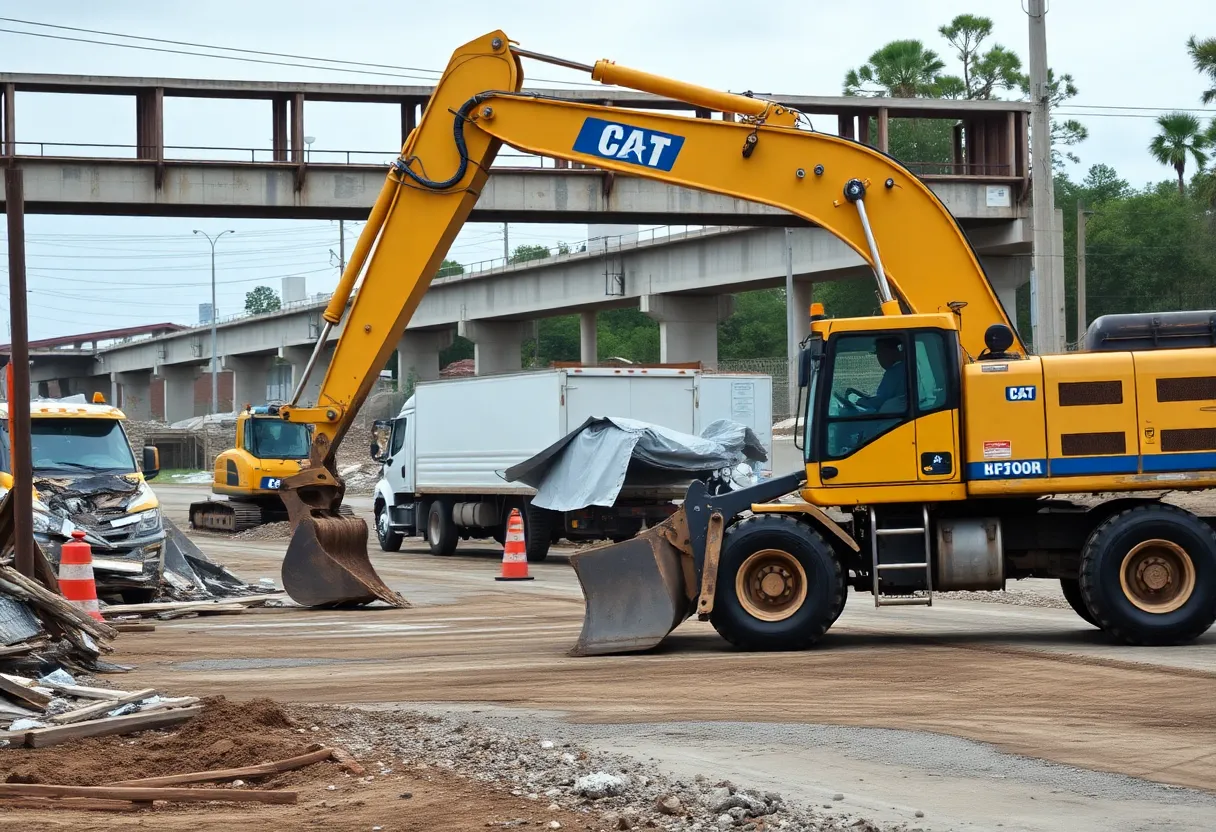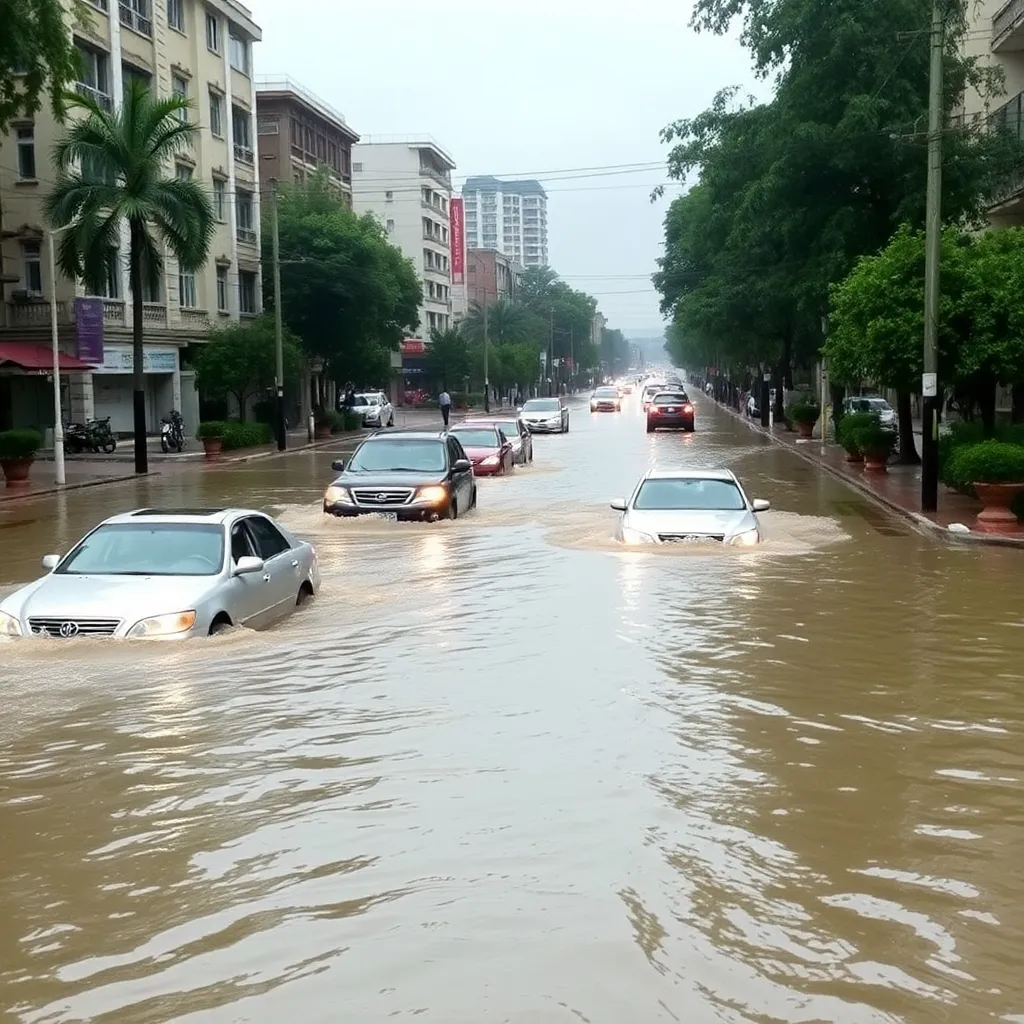News Summary
Thompson Construction Group Inc. has agreed to pay $191,070 to settle allegations of submitting false claims related to federal disaster recovery contracts in West Virginia. Investigations revealed that the company failed to install essential drainage systems and sump pumps in homes despite being awarded contracts under strict compliance requirements after the 2016 West Virginia floods. The settlement includes restitution and double damages under the False Claims Act, emphasizing the need for accountability in contract integrity for disaster recovery efforts.
Thompson Construction Group Under Fire: Payment of $191,070 Over False Claims in West Virginia
In a significant turn of events, Thompson Construction Group Inc., a construction company hailing from Sumter, South Carolina, has opted to settle allegations regarding fraudulent practices for a hefty sum of $191,070. This settlement comes in light of serious infringement claims related to the federal False Claims Act, which have raised eyebrows in the construction and disaster recovery sectors.
Unveiling the Allegations
The core of the allegations revolves around Thompson Construction’s submission of false claims for payments associated with federal disaster recovery grant funds. Reports indicate that the company falsely certified compliance with contract conditions while executing several crucial contracts following the catastrophic floods that devastated central and southern West Virginia in 2016.
The natural calamity resulted in 23 fatalities and inflicted an astounding estimated damage cost of $1.2 billion, prompting federal intervention and funding for rebuilding efforts. Following the disaster, contracts were awarded to Thompson with strict requirements, aiming to incorporate robust water management systems in homes located in flood-prone regions.
Solemn Contractual Obligations Ignored
According to the stipulations of the contracts, Thompson was mandated to install essential infrastructures such as crawl space drainage systems and sump pumps. These installations were meticulously detailed in the construction contracts prior to the bidding process. However, investigations uncovered a disturbing truth: despite the construction of homes being completed, the requisite drainage systems and sump pumps were conspicuously absent.
Financial Consequences of Fraudulent Activities
As a result of their actions, the settlement stipulates that Thompson Construction must fork out $95,535 as restitution, coupled with an additional $95,535 in double damages under the False Claims Act. This development sends a clear message regarding the serious legal repercussions of dishonesty in federal contracts.
A Systematic Approach to Accountability
The case was thoroughly investigated by various authorities, including the West Virginia Commission on Special Investigations and the HUD-OIG, both of which played pivotal roles in uncovering this fraudulent scheme. Their relentless efforts have raised awareness about the necessity for stringent monitoring and accountability in the use of federal funds.
The investigations revealed that Thompson Construction’s actions not only breached federal law but also undermined the integrity of disaster recovery efforts aimed at alleviating the struggles faced by flood victims. Authorities are underscoring a commitment to safeguarding federal resources and ensuring that those who exploit disaster recovery initiatives are held accountable.
Endorsement of Collaborative Efforts
Recognizing the collaborative nature of the investigation, the director of the West Virginia Commission on Special Investigations commended the partnership between state and federal offices. This unity was vital in resolving the case and highlighting the importance of vigilance in disaster recovery funding.
First Example Among Many?
With federal funds funneled through the Community Development Block Grant – Disaster Recovery (CDBG-DR) program, the case serves as a striking example of the critical need for proper oversight in the allocation of public resources. The commitment from regulatory bodies to uphold standards will serve as a deterrent for potential offenders in similar situations.
The actions of Thompson Construction have sparked conversations across the nation regarding the ethical obligations of construction companies engaged in disaster recovery projects. It’s evident that authorities will continue to scrutinize compliance with contract conditions, ensuring the rightful use of funds meant for the rebuilding of lives and communities.
Conclusion
In conclusion, the settlement of $191,070 not only represents a financial penalty for Thompson Construction Group but also stands as a testament to the influence of coordinated efforts between various judicial and regulatory bodies. The ongoing determination to protect federal funds and uphold the responsibility of contractors will likely shape the landscape of disaster recovery initiatives in the future.
Deeper Dive: News & Info About This Topic
HERE Resources
Additional Resources
- WCHS TV
- Wikipedia: 2016 West Virginia flood
- WCHS Network
- Google Search: 2016 West Virginia flood
- WVNS TV
- Google Scholar: fraudulent disaster recovery services
- Loot Press
- Encyclopedia Britannica: Fraud







